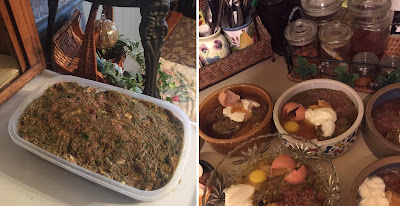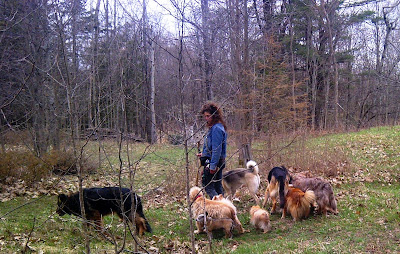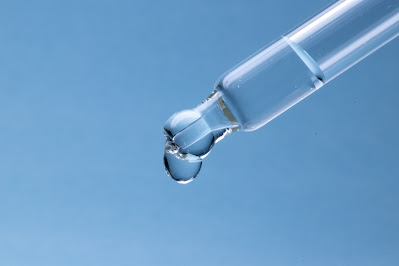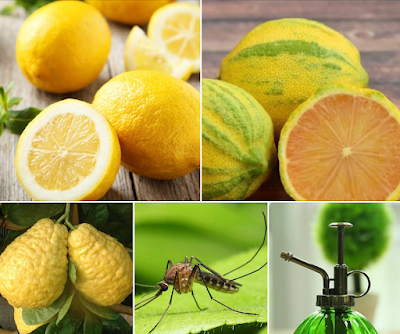Apple Cider Vinegar is Good For Your Dog, Cat and You – Health Benefits, Uses, Dosage
★ 6 min read
In this article:
- Introduction
- Nutritive and Medicinal Value
- Health Benefits, Uses and Recipes
- How To Use Apple Cider Vinegar as a Dietary Supplement
- Daily Dosage For Dogs and Cats
- Cautions and Side Effects
- What To Look For When Buying ACV
.1 Introduction, About Apple Cider Vinegar
Apple
Cider Vinegar (ACV) has been used for centuries for its medical properties and
as a dietary supplement.
In Greece, around 400 BC the father of modern medicine
– Hippocrates, prescribed ACV with honey to treat many ailments.
By the later
part of the 1700s about 70% of all farmers in USA’s New England states
owned-operated apple cider milling and pressing equipment.
Due to the many uses and its availability, ACV became a common currency of exchange. Particularly in rural areas where
coins were in short supply.
.2 Nutritive and Medicinal Value
Naturally
fermented, unpasteurized, organic ACV contains 'mother of vinegar'.
Mother of vinegar is a naturally occurring, cloudy
sediment-filled liquid which contains the healthful properties of ACV.
Distilled,
pasteurized ACV lacks the beneficial properties of unpasteurized, organic ACV. Pasteurization and
filtering destroys the ‘mother of vinegar’.
Nutrients and Medicinal Properties in Mother of Vinegar
- Acetic acid (the primary active ingredient).
- Amino, Lactic and Propionic Acid.
- Anti-bacterial.
- Anti-fungal.
- Anti-viral.
- Vitamins and minerals including:
- Vitamin A.
- Vitamin B, B2 and B6.
- Vitamin C.
- Vitamin E.
- Pro-vitamin Beta-Carotene.
- Vitamin P (bioflavonoids).
- Potassium:
- Potassium helps prevent tooth decay.
- Supports heart-health, helps balance blood pressure.
- Pectin:
- Supports the immune system.
- Helps lower LDL (bad cholesterol).
- Potash:
- A source of good fibre.
3. Health
Benefits of Apple Cider Vinegar
3.1 Digestive Aid
ACV helps to stimulate stomach acid. Stomach acid aids the digestion of protein
and fats.
3. 2 Detoxification
ACV helps clean the blood and liver of toxins.
A constant and heavy toxic
load forces the liver to work overtime. Eventually leading to organ fatigue, toxicity
and finally organ failure.
There are many exposures in daily life that can contribute to a high toxic load. For example:
- Dry and Canned dog and cat food (dry kibble, wet canned food, treats).
- Fluoridated water.
- Conventional flea, tick, heartworm treatments.
- Chemical-based household cleaners (breathing in the vapours, licking surfaces, lying on chemically cleaned surfaces).
- Surface contact and/or ingesting grass treated with fertilizers and pesticides.
- Road-salt.
- etc.
3.3 Ear Care
ACV can also be used to help treat bacterial infections.
- Combine equal parts of ACV and distilled water.
- Mix well.
- Use a syringe or dropper to place about 10 drops of the liquid into your dog or cat's ear.
- make sure that the syringe is located at the entrance to the ear canal.
- The syringe should never be placed inside of the ear canal.
- Gently massage the ear in a circular motion.
- Then let your dog or cat shake her head.
Caution
Do NOT use
this treatment if your dog or cat:
- Has perforated ear drums.
- Has a yeast infection in their ears.
To learn
more about ear infections, causes and other options for treatments and remedies continue reading here.
3.4 Fur and Skin
Health
ACV helps prevent dry skin, promotes the growth and maintenance of healthy fur and
is effective in the treatment of:
- Acne
- Apply undiluted ACV with a soft cloth or cotton ball.
- Burns (minor)
- Apply undiluted ACV with a soft cloth or cotton ball.
Caution
Do NOT use ACV as a dietary supplement or topical treatment if your dog is experiencing skin yeast infections. ACV will feed the yeast, resulting in a worsening of the condition.
Do NOT use ACV as a dietary supplement for dogs experiencing histamine issues.
Do NOT use ACV as a dietary supplement for dogs experiencing histamine issues.
3.5 Bacterial Skin Infections
bacteria-based hot spots and skin infections:
Instructions
- Bath your dog or cat in a warm Rooibos Tea bath.
- Then rinse as follows:
- Use one part ACV to three parts water.
- If the effected spot is small you can use a soft cloth or cotton ball to apply both rinses.
- If the skin is broken dilute the ACV mixture further:
- One part ACV to 4four parts water);
- Then be very careful as the acidic nature of ACV can cause stinging pain.
- Test a small area first by dabbing the ACV water solution with a cotton ball onto a tiny test area.
- Do not do a full soak on skin with broken areas without testing first.
3.6 Skunk
Odour Treatment
Instructions
- Sponge undiluted ACV onto fur and skin – avoiding eyes.
- Allow the ACV to dry.
- Follow with non-toxic, non-carcinogenic Shampoo and Rinse.
To learn how to address:
- Skunk spray symptoms using natural interventions.
- Go to this article.
3.7 Promote Growth of Good Gut Flora
ACV is a prebiotic and helps maintain a balanced pH level.
Probiotics are healthy microorganisms that reside in the gut.
When the population of good bacteria is depleted bad bacteria can flourish resulting in candida and other health issues.
ACV Supports Digestive Tract Health
- Prevent and remedy constipation.
- Regularize bowl movements.
- Keep the colon clean.
3.8 Metabolism Booster, Appetite Reducer
If your dog, cat has a slow metabolism, adding ACV to the diet can help.
3.9 Eye Infection Treatment
Apple cider vinegar can be used topically to help treat eye infections.
For the eye drop recipe and instructions for use :
- Go to this article.
3.10 Insect
Repellent Aid
ACV can help repel parasites
such as fleas, ticks mosquitoes and worms.
Intestinal Parasites
To help discourage intestinal parasites add apple cider vinegar as a supplement to your dog or cat's diet.
- Follow the instructions provided further below.
Fleas and Mosquitoes
ACV insect repellent spray:
- For the Insect Repellent Spray Recipe and,
- Instructions for use:
Go to this article.
3.11 Body pH Balance - Restore, Maintain Good pH Balance
ACV
is an excellent aid to restore blood and urine pH balance.
Poor diet can disrupt the pH balance
of your dog’s blood. Dogs and cats on a dry food diet have an acidic body pH.
Acidification of the blood and urine makes the body highly vulnerable to health issues and chronic disease.
3.12 Apple Cider Vinegar for
Household Cleaning
Daily
exposure to the air born vapors, droplets, and residue from synthetic chemical
household cleaners increase a dog and cat's toxic load.
You can help reduce the daily stress on your dog and cat's body by using dog and cat friendly natural household cleaners.
Learn
about the many ways you can use ACV to replace chemical based household
cleaners.
- For ACV household cleaning recipes,
- And tips:
Go to this article.
4. How to Use Apple Cider Vinegar as a Dietary
Supplement
There are two options for dosing your dog or cat with ACV.
4.1 Option One: Add Apple Cider Vinegar to Food
If you choose to add ACV to your dog or cat's food:
- First allow your dog or cat to indicate if they want the ACV.
- If your dog or cat does not self-select the ACV, you MUST respect the indication.
- NEVER force your dog or cat to take ACV.
- If your dog or cat self-selects the ACV, you can add it to their food.
4.2 Options Two: Add Apple Cider Vinegar to Water
If you choose water dosing as the method of supplementation:
- Add the daily dosage of ACV to a second bowl of fresh water.
- Place the water with ACV bowl beside your dog of cat's regular water bowl.
- Your dog and cat can self-select the ACV water or regular water as suites their need.
NEVER replace your dog or cat's regular water bowl with the ACV water bowl.
Always provide a bowl of pure water beside the ACV water bowl.
Before deciding to offer your dog or cat ACV as an ingested supplement, read the cautions setion of this article.
5. Daily Dosage for Dogs and Cats
up to 14 lbs - 1 tsp
Medium Dogs and Cats
15 lbs to 34 lbs - 2 tsp
Large
Dogs
35 lbs to 84 lbs - 1 tbs
85 lbs to 134 lbs - 1.5 tbsp
135 lbs to 200 lbs – 2 tbsp
35 lbs to 84 lbs - 1 tbs
85 lbs to 134 lbs - 1.5 tbsp
135 lbs to 200 lbs – 2 tbsp
6. Cautions and Side Effects
A partial list
6.1 Insulin and Diurectics
6.1 Insulin and Diurectics
Caution:
If
your dog is on insulin or diuretics do not add ACV to his/her diet there may be an interaction between
insulin/drugs and the ACV. When ACV is taken with a meal, ACV slows the rise of
blood sugar – this suggests that a reduced amount of insulin is required to
process the food. The dosage of insulin you give your dog may have to be
adjusted to account for lower blood-sugar levels.
6.2 Various Health Issue and Conditions
ACV should not be given to dogs or cats experiencing the following issues:
- Gastroparesis.
- Histamine Issues.
- Irritatation or inflammation of the intestinal tract lining
- Mast Cell Tumors.
- Candida overgrowth (yeast overgrowth).
7. What to Look
for When Buying Apple Cider Vinegar
Purchase:
- An organic, unfiltered, unpasteurized apple cider vinegar.
- The product should have mother of vinegar sediment at the bottom of the bottle.
Holistic Diet, Nutrition, Wellness Services Tailored to Your Individual Dog and Cat
For information about my holistic diet, nutrition and wellness services, visit my holistic wellness services page.
Maintain good health | Address acute and chronic health issues | Pre and post surgery support and recovery
My holistic wellness services are available worldwide via video consultation.
🌎 USA | Canada | UK | Europe | Australia | New Zealand | Asia | South and Central America | Africa | UAE
📱FaceTime | Facebook | Skype | WhatsApp
To set-up your holistic wellness consultation get in-touch via email, go to my contact me page.
Holistic Behavioral Services for Your Dog
For information about my holistic behavioral services, visit my holistic behavioral services page.
For dogs of all ages, sizes and breeds.
My behavioral services are available worldwide via video consultation.
🌎 USA | Canada | UK | Europe | Australia | New Zealand | Asia | South and Central America | Africa | UAE
📱FaceTime | Facebook | Skype | WhatsApp
To set-up your holistic behavioral session get in-touch via email, go to my contact me page.
Affiliations to Companies
✓ None.
✓ I don't sell food, supplements, or other products.
✓ I'm not aligned with any companies.
Article and graphics by Karen Rosenfeld.













